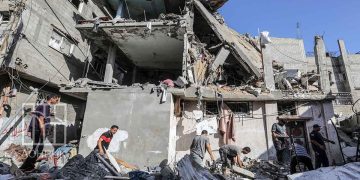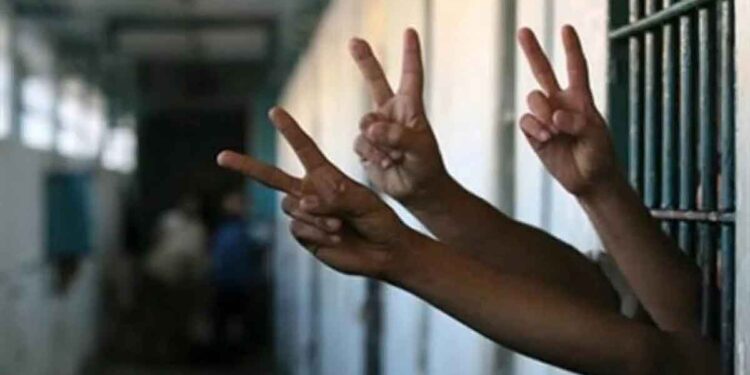Four Palestinian prisoners continue their open hunger strike in the prisons of the Israeli occupation protesting their administrative detention, amid serious threats to their life.
The striking prisoners are Kayed Al-Fasfous, who has been on strike for 130 days, Hisham Abu Hawash for 97 days, Ayyad Al Harimi for 60 days, and Luay Al-Ashkar, who has been on strike for 42 days.
The health condition of Al-Fasfous is becoming seriously dangerous with the passage of days as he may face paralysis or death, given the ongoing intransigence of the occupation government and its rejection of several petitions submitted for his release.
The attitude of the Israeli prison authorities is nothing but tampering with the life and health of the prisoner.
The prisoner, Abu Hawash, 39, from Dura in Hebron, suffers from severe emaciation and weakness, aches all over his body, movement difficulty, and frequent loss of consciousness. He also suffers from vomiting, and has become 50 kg only.
Meanwhile, the 28-year-old prisoner Al-Herimi from Bethlehem suffers from serious deterioration in his health, as he suffers from severe pain, and is unable to stand on his feet, blurred vision, and continuous vomiting.
It is noteworthy that the prisoner Alaa Al-Araj suspended his open hunger strike, which lasted (103) days, after the occupation authorities canceled his administrative detention order, last Thursday.
On November 11, Miqdad Al-Qawasmah suspended his open hunger strike, which remained for 113 days, in exchange for his release in February of next year.
Administrative detention is defined as detention without charge or trial, based on a secret file that neither the detainee nor his lawyer has access to.
According to the military orders of the occupation, an administrative detention order can be renewed unlimited times, where an administrative detention order is issued for a maximum renewable period of six months.
The occupation authorities administratively detain about 500 prisoners, including four thousand and 650 Palestinians in its prisons, according to Palestinian human rights organisations.






























